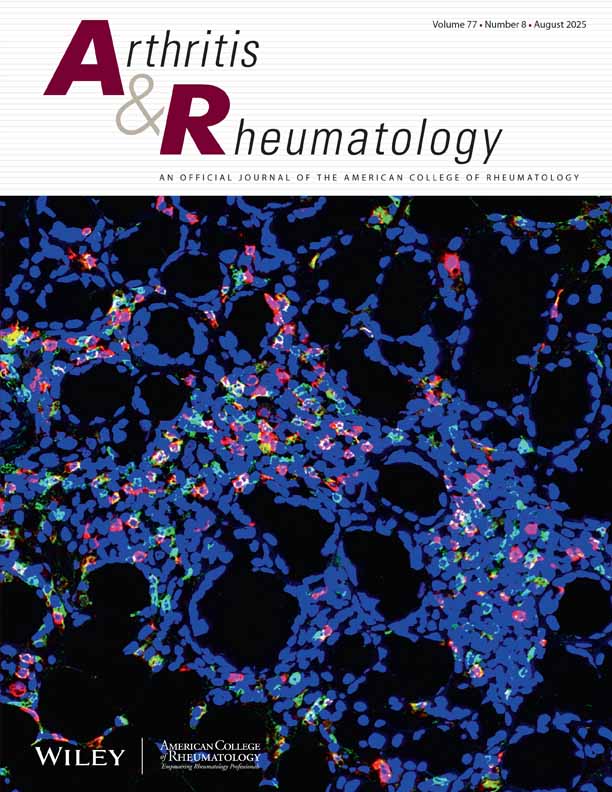B cell depletion may be more effective than switching to an alternative anti–tumor necrosis factor agent in rheumatoid arthritis patients with inadequate response to anti–tumor necrosis factor agents
Abstract
Objective
Patients with rheumatoid arthritis (RA) in whom the response to anti–tumor necrosis factor (anti-TNF) therapy is inadequate have several therapeutic options, such as switching to an alternative anti-TNF agent or initiating B cell–depleting therapy with rituximab (RTX). Although both therapeutic options have been proven effective in trials, no head-to-head comparisons are available. The aim of this study was to compare the effectiveness of RTX with that of an alternative anti-TNF agent in the management of patients with RA who had an inadequate response to anti-TNF therapy.
Methods
This prospective cohort study was nested within the Swiss Clinical Quality Management RA cohort and included all patients who had an inadequate response to at least 1 anti-TNF agent and subsequently received either 1 cycle of RTX or an alternative anti-TNF agent. The primary outcome was the evolution of RA disease activity (as measured on the Disease Activity Score in 28 joints [DAS28]), which was analyzed using multivariate regression models for longitudinal data.
Results
One hundred sixteen patients with RA were included; 50 patients received 1 cycle of RTX, and 66 patients were treated with a second or a third alternative anti-TNF agent. At baseline, there were no significant differences between the 2 groups in age, sex, disease duration, and disease activity. Evolution of the DAS28 was more favorable in the group that received RTX compared with the group that received an alternative anti-TNF agent (P = 0.01). At 6 months, the mean decrease in the DAS28 was −1.61 (95% confidence interval [95% CI] −1.97, −1.25) among patients receiving RTX and −0.98 (95% CI −1.33, −0.62) among those receiving subsequent anti-TNF therapy.
Conclusion
The results of this observational study suggest that treatment with RTX may be more effective than switching to an alternative anti-TNF agent in patients with RA in whom active disease persists despite anti-TNF therapy.




